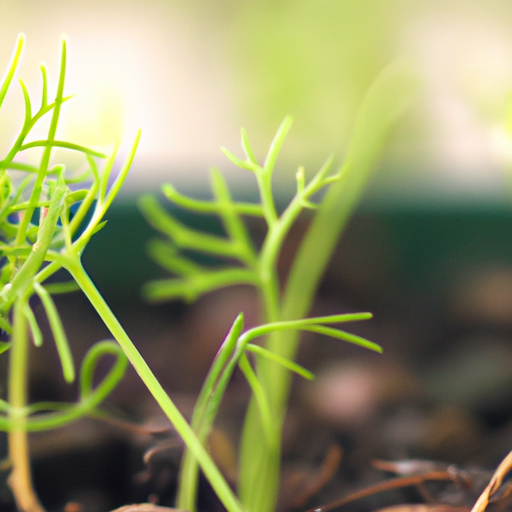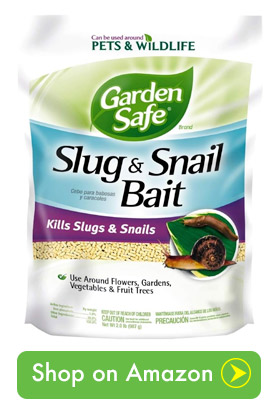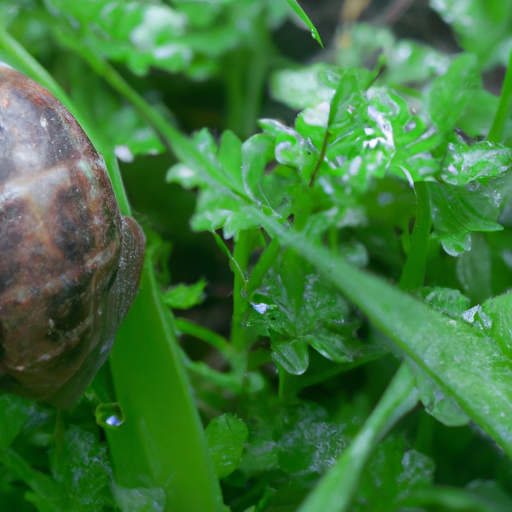Table of Contents
The Best Plants to Repel Slugs in Your Garden
If you’ve ever had a garden, you know that slugs can be a real nuisance. They can quickly devour your plants and leave your garden looking like a disaster. Fortunately, there are some plants that can help repel slugs and keep them away from your garden. Here are some of the best plants to repel slugs in your garden:
1. Lavender: Lavender is a great plant to repel slugs. Its strong scent is unappealing to slugs, so they’ll stay away from it.
2. Marigolds: Marigolds are another great plant to repel slugs. They have a strong scent that slugs don’t like, so they’ll stay away from them.
3. Chrysanthemums: Chrysanthemums are a great plant to repel slugs. They have a strong scent that slugs don’t like, so they’ll stay away from them.
4. Garlic: Garlic is a great plant to repel slugs. Its strong scent is unappealing to slugs, so they’ll stay away from it.
5. Mint: Mint is another great plant to repel slugs. Its strong scent is unappealing to slugs, so they’ll stay away from it.
These are just a few of the best plants to repel slugs in your garden. Planting these around your garden can help keep slugs away and keep your garden looking beautiful. When you mix plants like these with your veggies, it is commonly known as ‘companion planting’. Let’s take a look at how companion planting can be beneficial to the health of your growing vegetable garden.
How to Use Companion Planting to Repel Slugs

Companion planting is a great way to repel slugs from your garden. As we’ve already seen, there are many plants that repel slugs and it’s an organic, natural way to keep your plants safe from these slimy pests. Here’s how to use companion planting to repel slugs from your tomatoes, lettuce, and cabbage plants:
1. Plant chives between your tomatoes. Slugs don’t like the strong smell of garlic and chives, so planting them around your garden will help keep them away.
2. Plant sage near your lettuce rows. Sage has a strong scent that slugs don’t like, so planting it around your garden will help keep them away.
3. Plant rosemary around your garden perimeter. Rosemary is a perennial that has a strong scent that slugs don’t like, so planting it around your garden will help keep them away.
4. Plant thyme near your tomatoes and cucumbers. Thyme is yet another perennial that has a strong scent that slugs don’t like, so planting it around your garden will help keep them away.
By using companion planting to repel slugs, you can keep your garden safe from these slimy pests without having to use harsh chemicals. Give it a try and see how it works for you!
The Benefits of Growing Slug-Repelling Plants
One of the main benefits of growing slug-repelling plants is that they can help keep your garden looking its best. Slugs can quickly destroy your plants, leaving you with a garden full of wilted leaves and stems. By planting slug-repelling plants, you can help keep your garden looking lush and vibrant.
Another benefit of growing slug-repelling plants is that they can help reduce the amount of time you spend dealing with slugs. If you’re constantly having to pick slugs off of your plants, it can be a real hassle. By planting slug-repelling plants, you can help reduce the amount of time you spend dealing with slugs.
Finally, growing slug-repelling plants can help reduce the amount of money you spend on slug control products. If you’re constantly having to buy slug control products, it can add up quickly. By planting slug-repelling plants, you can help reduce the amount of money you spend on slug control products while also growing tasty herbs.
As you can see, there are many benefits to growing slug-repelling plants. Not only can they help keep your garden looking its best, but they can also help reduce the amount of time and money you spend dealing with slugs. So, if you’re looking for a way to protect your garden from slugs, consider planting some slug-repelling plants. There are many advantages to this method and only a few downsides that we’ll cover next:
The Pros and Cons of Using Slug Repellents
Slug repellents are a popular way to keep slugs away from your garden and plants. But before you decide to use them, it’s important to understand the pros and cons of using slug repellents.
Pros
One of the biggest advantages of using slug repellents is that they are easy to use. Most repellents come in a spray form, so you can simply spray the repellent around the perimeter of your garden or plants. This makes it easy to keep slugs away without having to do any extra work.
Another advantage of using slug repellents is that they are relatively inexpensive. Most repellents are available at your local garden center or online for a reasonable price.
Finally, slug repellents are generally safe to use around children and pets. Most repellents are made from natural ingredients, so you don’t have to worry about any harmful chemicals.
Cons
One of the biggest drawbacks of using slug repellents is that they are not always effective. Slugs can be persistent and may find ways to get around the repellent.
Another disadvantage of using slug repellents is that they can be messy. The repellent can get on your hands and clothes, and it can also get on your plants and flowers.
Additionally, they are short-lasting and will not usually persist after a heavy rain, so you’ll have to be diligent in applying them to the garden area.
Finally, some repellents may have a strong odor that can be unpleasant. This can be especially true if you are using a natural repellent that contains garlic or other strong-smelling ingredients.
Overall, slug repellents can be a useful tool for keeping slugs away from your garden and plants. However, it’s important to weigh the pros and cons before deciding if they are right for you.

How to Create a Slug-Free Garden with Natural Solutions
Creating a slug-free garden doesn’t have to be difficult. With a few natural solutions, you can keep your garden free of these slimy pests. Here are some tips to help you get started:
1. Plant Slug-Resistant Plants: Certain plants are naturally resistant to slugs, such as lavender, geraniums, and petunias. Planting these in your garden can help keep slugs away.
2. Create a Barrier: Slugs are attracted to moist, dark places. To keep them out of your garden, create a barrier around the perimeter with materials like crushed eggshells, sand, or diatomaceous earth.
3. Use Natural Predators: Introducing natural predators like ducks, geese, and frogs into your garden can help keep slugs away.
4. Handpick Slugs: If you find slugs in your garden, you can handpick them and dispose of them in a bucket of soapy water.
5. Use Beer Traps: Slugs are attracted to beer just like I am, so you can create a beer trap to lure them away from your garden. Simply dig a shallow hole and fill it with beer. The slugs will be attracted to the beer and drown in it.
By following these tips, you can create a slug-free garden with natural solutions. With a little bit of effort, you can keep your garden looking beautiful and free of slugs.


